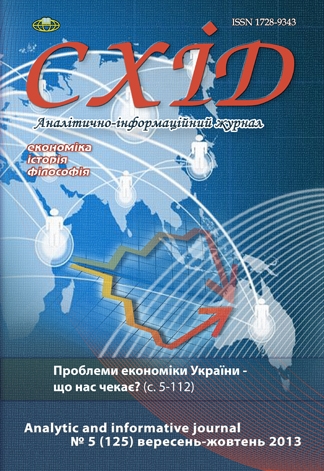B. Chicherin's and V. Soloviyov's philosophical and legal rationale of justice
DOI:
https://doi.org/10.21847/1728-9343.2013.5(125).19071Keywords:
justice, law, morals, truth, equality, freedom, good, evil, loveAbstract
The paper examines the issue of justice in the Russian philosophical tradition of the late 19th - early 20th centuries in the context of a philosophical and legal rationale of this category, offered by the famous Russian philosophers Boris Chicherin and Vladimir Soloviyov.
An analysis of Boris Chicherin's works "Philosophy of Law", "Course of State Science" and "Philosophical Issues" afforded ground for concluding that the thinker deduced justice from the idea of freedom and defined it as a balance of compulsory (state) and voluntary (moral) laws. Keeping such a balance is possible only within human unions which supreme rule is adherence to truth i.e. everyone shall get what belongs to him. Requirements of justice also include respect for someone else's rights and minority rights whereas achievement of general welfare is considered by the philosopher as its supreme goal.
Views of Vladimir Soloviyov were explored through analyzing his works "Justification of Good" and "Right and Morals". Justice is among the central concepts of his philosophical conception "Ethics of Universal Unity" and is defined as common equality before the law, the supreme ideal, the good i.e. the only righteous and true life journey. The good as it is reveals to a man his meaning of life through the categories of truth and love. Justice as law of truth destines to each his own whereas justice as law of love shows a man the necessity of sacrifice for his neighbor.
Discussion between these philosophers subsequently governed the extent of creative perception of philosophical and legal issues related to the balance of law and morals, individual freedom and equality.
Downloads
References
Чичерин Б. Н. Философия права / Б. Н. Чичерин - СПб. : Наука, 1998. - 654 с.
Чичерин Б. Н. Курс государственной науки / Б. Н. Чичерин - М., 1896. - Ч. 2. - С. 424.
Чичерин Б Н. Вопросы философии / Б. Н. Чичерин. - М., 1904.
Кацапова И. А. История и современность: о дискуссии между Б. Чичериным и В. С. Соловьевым / И. А. Кацапова // Философские науки. - 2012. - № 3. - С. 41-51.
Гурвич Г. Д. Два величайших русских философа права: Борис Чичерин и Владимир Соловьев [Електронний ресурс] / Г. Д. Гурвич. - Режим доступу : http // law. edu. Ru / magazine / article.asp?mag1D = 5 &magnum = 4 &ma.
Соловьев В. Оправдание добра / В. Соловьев // Собр. соч. - Т. 7. - С. 211-487.
Соловьев В. Право и нравственность / В. Соловьев // Собр. соч. - Т. 7.
Чичерин Б. Н. Вопросы политики / Б. Чичерин. - 2-е изд. - М., 1906. - С. 114.
REFERENCES
Chicherin B.N. (1998), Philosophy of Law, Nauka, Sanct-Peterburg, 654 p.
Chicherin B. N. (1896), The course of the state of science, ch. 2, Moskow, p. 424.
Chicherin B.N. (1904), Problems of Philosophy, Moskow.
Katsapova I. A. (2012), Philosophy of Science, 3, pp. 41-51.
Gurvich G. D. Two great Russian philosopher of law: Boris Chicherin and Vladimir Solovyov, available at: http // law. edu. Ru / magazine / article.asp?mag1D = 5 &magnum = 4 &ma.
Soloviev V. (1914), Justification of the Good, Collected Works, Vol.7, pp. 211-487.
Soloviev V. (1914), Law and Morality, Collected Works, Vol. 7.
Chicherin B.N. (1906), Policy issues, Moskow, p. 114.
Downloads
Published
How to Cite
Issue
Section
License
Copyright (c) 2013 Oleksandr Kovnerov

This work is licensed under a Creative Commons Attribution-NonCommercial-NoDerivatives 4.0 International License.
1. Authors bear responsibility for the accuracy of facts, quotations, numbers and names used.
2. Manuscripts are not sent back.
3. The publisher does not always agree with the authors' opinion.
4. The authors reserve the right to authorship of the work and pass the first publication right of this work to the journal under the terms of a Creative Commons Attribution-NonCommercial-NoDerivatives 4.0 International License. This license allows others to distribute (copy) the published work for non-commercial purposes, provided there is mandatory attribution to its authors and a link to the first publication in our journal.
5. The authors have the right to conclude separate supplement agreements that relate to non-exclusive work distribution in the form in which it has been published by the journal (for example, to upload the work to the online storage of the journal or publish it as part of a monograph), provided that the reference to the first publication of the work in this journal is included.

